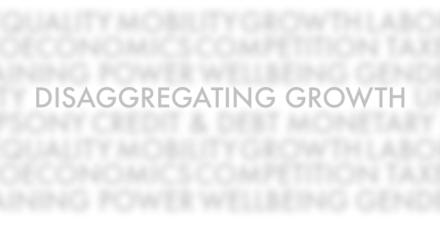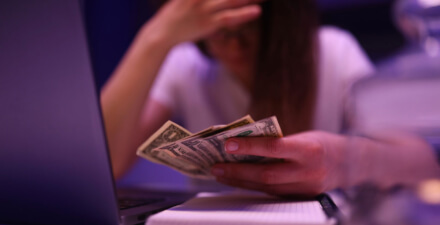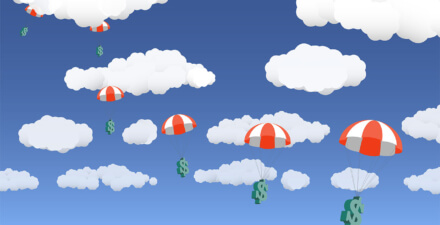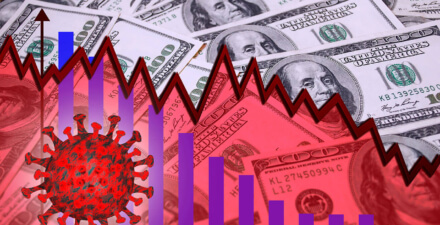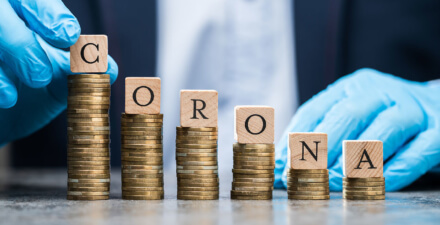Brad DeLong: Worthy reads on equitable growth, July 28-August 3, 2020
Worthy reads from Equitable Growth:
1. Yes, the coronavirus recession has a supply-shock component, but it has a larger demand-shock component, and a social insurance component. We should be fighting all three. Read Heather Boushey, “Testimony Before the Joint Economic Committee on the Coronavirus Recession,” in which she writes: “Addressing the administration’s failure to contain the coronavirus and COVID-19, the disease caused by the virus, is the only way to fully restore confidence and put us on the path to economic recovery. The United States is experiencing the most uncontrolled and deadly outbreak of any high-income country in the world. Compared to the European Union, we now record 10 times as many daily coronavirus cases and COVID-19 deaths. Until the virus is contained, however, there are key actions that can bolster economic confidence and rein in uncertainty. Specifically: Immediately renew the $600 Pandemic Unemployment Compensation payments. Set economic assistance programs, such as Unemployment Insurance, to continue automatically until objective economic conditions improve. Pass generous aid for states and localities, which have already shed 1.5 million jobs and are bearing the brunt of responding to the pandemic, on the order of the $900 billion in the HEROES Act. Resist enacting corporate liability immunity and instead release workplace health standards that protect workers’ lives and give employers evidence-based guidance. Enact other policies to stabilize demand and help those most affected.”
2. This is very good and very important. My grandfather always mourned that, when he got his Ph.D., he thought he was getting a Ph.D. in “public administration” but found, instead, during his career that his discipline had turned into “political science.” Here Amanda Fischer and Alix Gould-Werth try to fill in this gap, and largely succeed. Read their “Broken plumbing: How systems for delivering economic relief failed the U.S. economy,” in which they write: “We detail four delivery systems tasked with providing relief during the coronavirus recession— relief targeted to small and large businesses, Unemployment Insurance, direct payments to consumers, and paid leave programs—each of them emblematic of a different plumbing problem. Looking at business rescue programs, we see pipes well-designed to flow easily to people with power, while the taps of the less powerful remain dry. Looking at Unemployment Insurance, we see the failure to invest in pipes, preventing these benefits from flowing smoothly to people who need them the most. Looking at direct payments, we see who profits when the plumbing is routed through costly private systems that twist and turn, enabling the powerful to siphon off of the plumbing. And looking at paid leave, we see what happens when policymakers build no pipes at all and suddenly need to turn on a spigot when the economy hits a drought.”
Worthy reads not from Equitable Growth:
1. The first estimate of the level of national income in the second quarter of 2020 arrived, and was as bad as economic forecasters had anticipated. Numerically, the third-quarter will look somewhat better: there will be an uptick as the end-of-June base out of which the third quarter evolves includes substantial relaxation of lockdown against the coronavirus in May and June. Unfortunately, that relaxation was premature: the United States still has major episodes of uncontrolled spread. Forecasting future levels of national income in the United States requires forecasting the future spread of the coronavirus and the reaction of Americans to uncontrolled spread. The current forecast is that control over the pandemic is not coming to the United States anytime soon, and substantial recovery is not possible without control over it. Read Alex Hickey, “U.S. GDP Contracts 9.5% in Q2,” in which she writes: “The situation is still, as IHS Markit Chief Economist Nariman Behravesh delicately put it, “horrific.” It’s not just us. European economic powerhouse Germany reported a record 10.1% quarterly drop in GDP yesterday. U.S. economic activity began improving in May, and unemployment fell from nearly 15% in April to 11% in June. But recent surges in COVID-19 cases are threatening that momentum … the Labor Department reported more than 1.4 million first-time jobless claims—the second weekly rise. While the CARES Act offset some of the hardest impacts of the shutdown, the relief bill’s 600/week in extra unemployment benefits formally expires today for around 20 million Americans … Negotiations over a third COVID-19 relief bill stalled … with those $600 payments being the main point of disagreement. Democrats want benefits to continue as is, while Senate Republicans want to cut them to $200/week until states make plans to replace 70% of workers’ lost wages. There are also disagreements about an eviction moratorium extension, aid for state/local governments, and liability protections for businesses, schools, and healthcare providers.”
2. Yes, the coronavirus can be beaten. Schools are reopening and the economy is back to normal in Taiwan. We could beat it too with a nationwide, no more than one-month lockdown. But it would have to be nationwide, and it would have to be enforced. Whether a country is able to figure out how to do this is, as Paul Krugman has said, is an example of the marshmallow test: Read Christina Farr and Michelle Gao, “How Taiwan beat the coronavirus,” in which they write: “Taiwan has been praised for its highly effective Covid-19 response. Taiwan, which has nearly 24 million citizens, has had only 451 cases and seven deaths. Taiwan had a plan in place for years, which involved quarantines, contact tracing and wide availability of masks, among other things … When Catherine Chou arrived in Taipei after flying from Los Angeles, authorities told her she would need to quarantine for two weeks. For Chou, a citizen, that meant booking herself into a hotel at her own expense, although subsidies are available and the government has paid stipends for some stays. When she first arrived, she got a welcome package including dish soap, nail clippers and laundry detergent. Food was delivered to her doorstep. Several times a day, a representative of the local district’s office phoned her to check in and thank her for doing her part. She’s now almost wrapped up her hotel room stay. Once she’s officially cleared of Covid-19, she’ll be free to go. After living in the United States, which is still partially closed in various states, she’s looking forward to simple pleasures like visiting her family at home or sitting in a coffee shop with a good book. Taiwan allowed many of its restaurants and bars to reopen in May. “We have this phrase in Taiwan that roughly translates to, ‘This is your country, and it’s up to you to save it,’” she said. “I’m really glad that they’re taking this quarantine seriously.”


